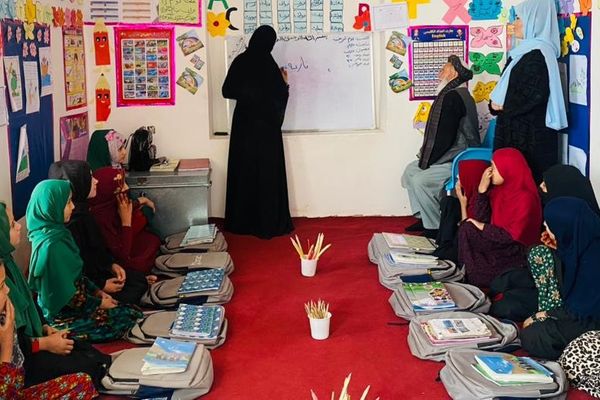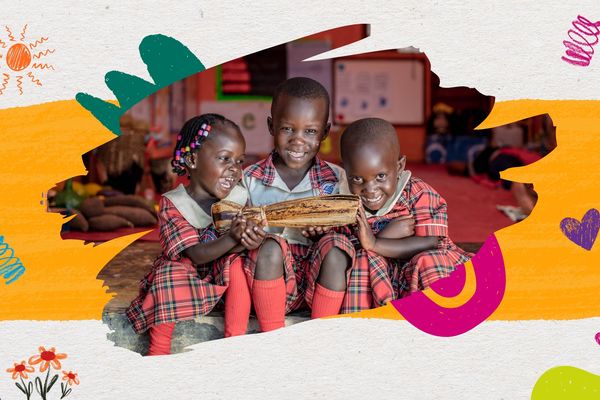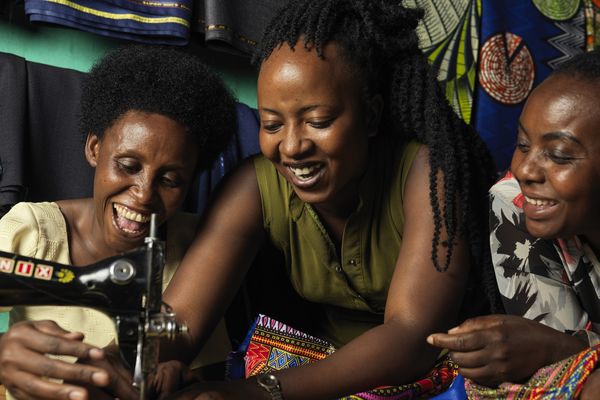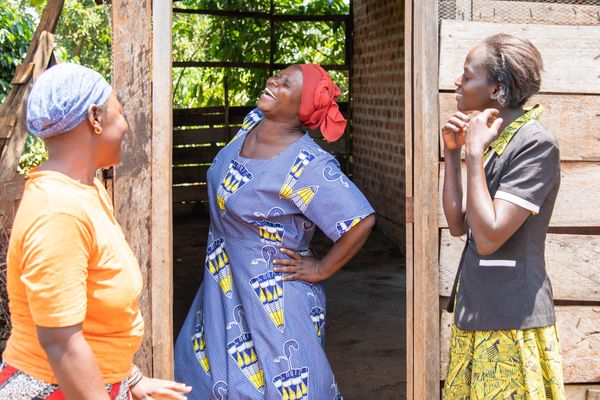
Date: 24 Jan 2025
Afghanistan is currently the only country in the world where secondary and higher education is strictly forbidden to women and girls over age 12. Poverty, war, social insecurity, and cultural norms have all impeded girls’ access to education, resulting in 80% of school-aged Afghan girls being currently out of school. As such, for girls like Amreen (not her real name) from Qali Regee, a village in Afghanistan’s Kapisa province, a chance at education was only a distant dream.
Amreen comes from a family of seven siblings with parents who did not get to school themselves. Her parents, especially her father, were opposed to the idea of their daughters attending school. He believed that education was reserved solely for boys. At 14, Amreen spent her days tending to household chores with her four sisters while both her brothers went off to school.
“My father would say that girls belonged at home. That we only had to learn the skills to become good wives and mothers,” said Amreen.
In 2023, Amreen’s life took a new direction when BRAC established a community-based accelerated learning school in Qali Regee. The school was for girls aged between 10-15 years old who have either dropped out of school or never attended one, and covered Grades I-V in three years. After which, graduates were transitioned into formal schools by BRAC with support of the Ministry of Education and the community to continue their education. To ensure access to education for as many girls as possible, a meeting was conducted in the village with parents to motivate them to send their daughters to the school. Amreen’s mother attended one of the first meetings, and there she learned about the school’s curriculum and offerings and more importantly, about the importance of educating girls.
“My mother returned home convinced that her daughters should be attending school. She requested my father to enrol me at the BRAC school as I am within the age group the school welcomed. But my father refused,” said Amreen.
When Amreen’s parents were absent from the following meetings, the school management committee reached out to them. Three members of the committee—a community leader, principal of a government hub school, and a retired army officer—visited Amreen’s home and spoke to her father. They explained to him why girls needed education as much as boys to persuade him to reconsider his decision. Confronted by the collective voice of respected members of his community, Amreen’s father acquiesced.
“When I saw other girls in my village going to school, I dreamt of joining school and being like them. When I heard that I was going to BRAC school, I could not believe it. It was the happiest moment in my life which I will never forget. The school gave me a bag, pencils, notebooks and textbooks on the very first day,” says Amreen.
Initially she found it challenging to adapt to the setting. However, with each passing day, she grew more confident —her grades a proof of her dedication and determination. “Witnessing my progress, my father stopped expressing his reservation about girls going to school. He is actually happy to see how well I am doing,” said Amreen.
It could so easily have been that Amreen’s potential lay dormant her entire life, but thankfully that is not the case. Amreen’s wish is to use her education to make a difference in her community. “I want to become a doctor one day and provide essential healthcare services to those in need, especially to those here in my village. My education has given me the confidence to pursue this dream and contribute to society. I am hopeful that more girls will have the chance to change their lives through education, just like I have,” said Amreen.


